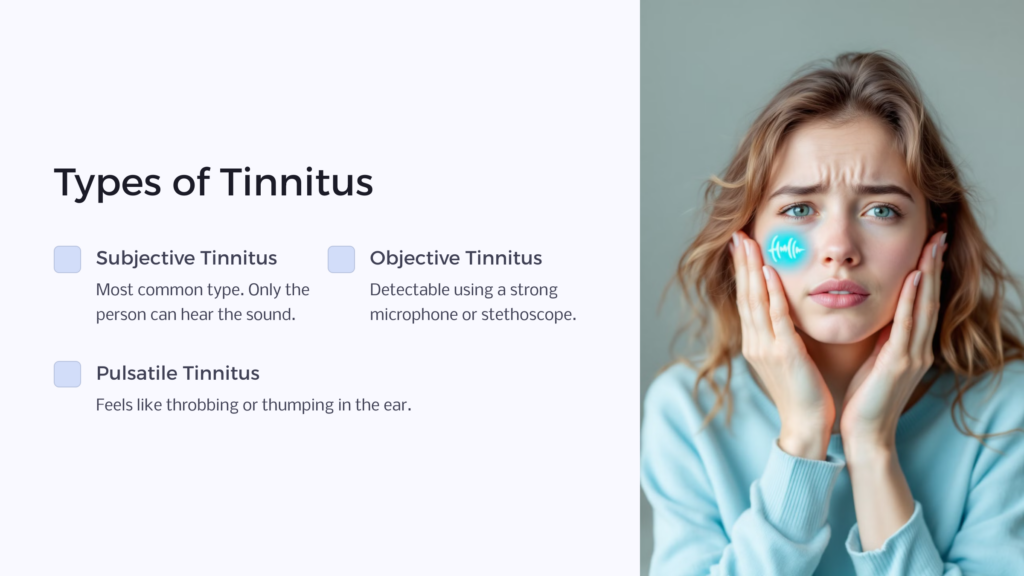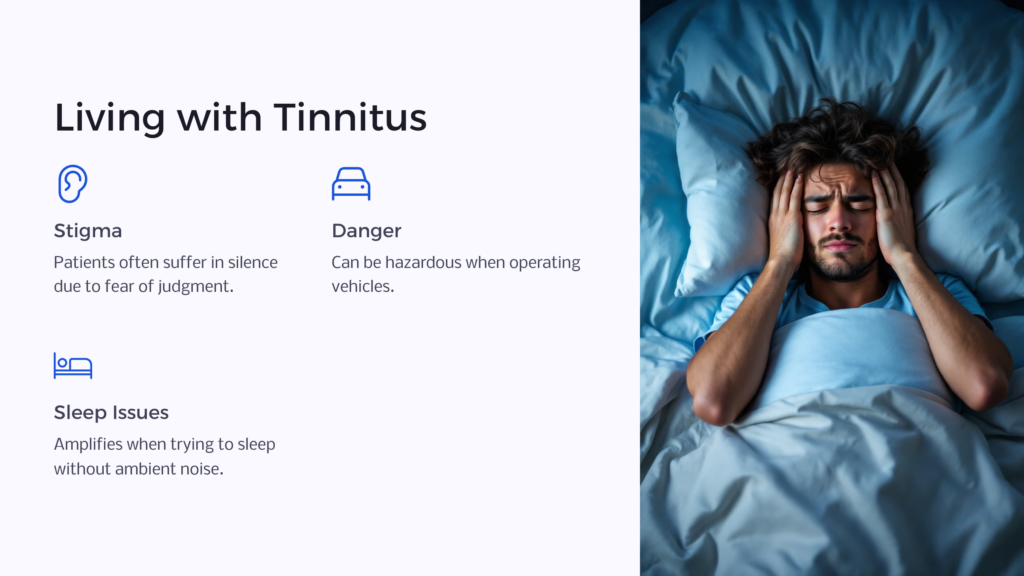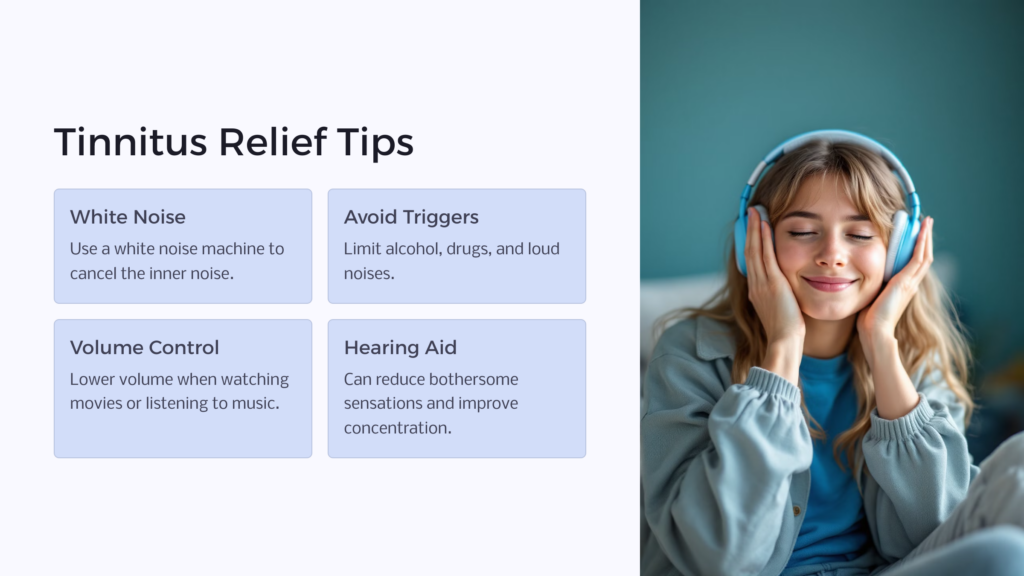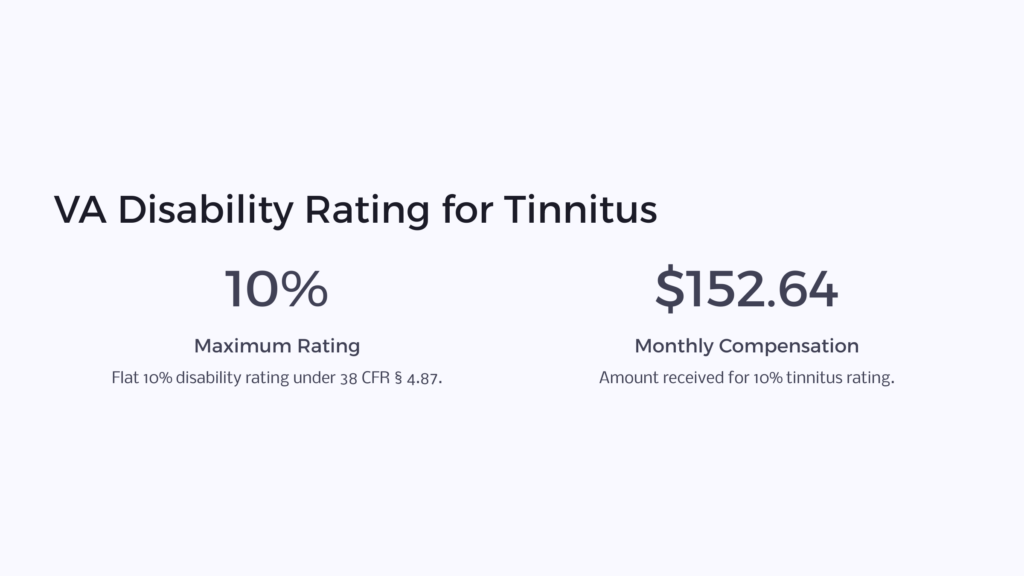
You might hear a sudden buzzing or ringing in your ear that stops you in your tracks. The medical term for this uncomfortable and sometimes painful sensation is tinnitus, which is caused by contracting muscle spasms in the inner ear. According to the American Tinnitus Association, this condition affects 25 million people in the US. But the most common question that may concern you would be: “Is tinnitus a disability?”
And not just impairment, either. What you probably are interested in is if the condition categorizes as a social security disability for veterans, which means you are eligible for a VA benefit.
Is Tinnitus a Disability?
Tinnitus falls into different types: Subjective, Objective, and Pulsatile. Subjective is the most common type. This refers to a condition where the person can only hear the sound. In contrast, Objective Tinnitus is detectable using a strong microphone or a stethoscope. Finally, Pulsatile Tinnitus refers to the condition where the person feels a throbbing or thumping in the ear. The sensation can range from uncomfortable to debilitating.
Tinnitus disability should not be mistaken for SSD hearing loss, which can qualify you for disability benefits if you were in military service. However, SSD hearing loss may require wearing hearing aids.
Another condition mistaken for tinnitus is noise-induced hearing loss (NIHL) caused by loud noise exposure.
While you may be a candidate for social security disability, the VA does not consider it an overburdening condition that impairs you from living your life.
This condition will merit a veteran’s disability rating, meaning you will receive a small compensation.
What Is It Like Living With Tinnitus?

Tinnitus patients deal with the stigma of being judged as insane, especially since no one else can hear and experience the noise they are hearing. So, they tend to suffer in silence, except when the pain becomes too debilitating.
The sensation can be uncomfortable since it can drag on for over five minutes. It can also be dangerous, particularly if the veterans operate a motor vehicle. In addition, the problem amplifies when tinnitus patients are about to fall asleep and there is no ambient sound, which typically masks the inner noise.
According to data, only about half of veterans decide to see a doctor for their condition. The only concern is that, if left untreated, tinnitus can lead to permanent hearing problems.
Unfortunately, experts have not yet discovered the cure for chronic tinnitus.

However, you can follow these tinnitus relief tips to alleviate the discomfort or pain:
- Use a white noise machine to cancel the noise.
- Avoid drinking alcohol or taking drugs.
- Avoid using headphones, which can trigger the condition.
- Lower the volume if you are watching a movie or listening to music.
- Use noise-canceling headphones when you are around loud machinery.
Finally, wear a hearing aid, which reduces the bothersome sensation and enables you to concentrate more.
Maximum $ and % the VA Offers for Tinnitus
Tinnitus is a hearing disorder that causes people to hear noises in one or both ears. This disorder is often subjective, which means only the patient hears the noise.
Sometimes, others can also hear the noises as well. This medical condition is known as objective tinnitus.
Those who suffer from tinnitus hear a ringing noise, which may come or go or happen throughout. They also hear hissing, buzzing, roaring, clicking, or humming sounds.
The VA rates tinnitus under 38 CFR § 4.87, the rating schedule for ear, diagnostic code 6260. That means the VA rates tinnitus at a flat 10% disability rating. Often, it’s impossible to get a higher rating for tinnitus.
The maximum tinnitus VA rating is 10%; however, veterans can get an increased rating if their tinnitus is service-related, worsened, or led to other medical conditions or if their tinnitus resulted from a disease or an injury that occurred during their time in the military.
Further, if your service-related disability hinders you from working, you should qualify for unemployability benefits, which is similar to a 100% disability rating.
The VA only increases this rating if they can combine it with another percentage for a peripheral vestibular disorder, hearing loss, or some other diagnostic condition.

If you’re awarded a tinnitus rating of 10%, you’ll receive $152.64 per month. This figure remains the same even though you have dependents.
When trying to prove that your tinnitus is service-connected, putting forth as much evidence as possible is crucial. Even though this is a common condition, the Department of Veterans Affairs might hesitate to pay compensation without sufficient proof that your condition is connected to your time in the military. Proving a service connection requires vital evidence, such as:
- A recent medical diagnosis establishing that you have tinnitus
- Documentation proving an in-service illness, event, or injury
- A medical nexus linking the in-service injury or event to the current medical diagnosis.
You can also provide the following evidence to increase your odds of receiving compensation:
- Medical documents: These prove an official lack of tinnitus before serving in the military and presence after
- Doctor’s opinions: A medical expert can confirm the likelihood of tinnitus being service-related
- Service personal records: This can establish a probability of noise exposure during military service that can be linked to tinnitus or hearing loss
A sworn declaration is another crucial piece of evidence. This is an official statement a veteran can compile documenting their entire experience. When seeking compensation for tinnitus, include the exact date you started experiencing tinnitus symptoms, if the condition began during service, the severity of your situation, and a list of every incident of substantial noise exposure.
Is It Easy to Apply for VA Disability?
In the US, you must serve 24 consecutive months of military service before qualifying for VA disability, assuming you did not receive a dishonorable discharge while on active duty. But to answer the question, it depends on what type of condition the veterans have.
Veterans can argue that tinnitus is a personal injury they suffered during military service. Meanwhile, the VA considers the condition a “secondary disability” similar to PTSD or traumatic brain injury.
Does the SSA Count Tinnitus as a Disability?
It may pleasantly surprise you that having tinnitus is one of the easiest ways to receive VA disability benefits. The other conditions include mental health problems, scars, musculoskeletal conditions, and presumptive disorders. Based on records, the most awards for Total Disability Individual Unemployability went to veterans with tinnitus, particularly those who suffered profound hearing loss due to their military service.
Tinnitus is a hearing impairment that may lead to total hearing loss. In fact, 9 in 10 veterans with tinnitus also complain of hearing loss.
How Can You Prove that You Have Tinnitus?
Tinnitus symptoms are sometimes considered phantom symptoms because only the patient can hear and feel the inner sounds. Diagnosing tinnitus involves a hearing test after you complain of one glaring symptom: the constant buzzing or ringing in the ear.
As part of the diagnosis, the doctor will ask you to clench your jaw and move your eyes, neck, and extremities. You may also submit blood samples and undergo a CT scan or an MRI to rule out other medical problems. Finally, the diagnosis will be reflected on your medical record, which you would submit to the VA for your social security disability claim. Meanwhile, the VA will classify your tinnitus claim under “Ear, Diagnostic Code 6260,” acknowledging that it is a legitimate veterans disability claim.
What Happens if the VA Denies My Disability Compensation for Veterans Hearing Loss?
Even if tinnitus has a low disability rating, you are still eligible for VA benefits. In addition, you can apply for a claim if you feel you are entitled to financial compensation due to your personal injury.
However, you can still appeal the decision if the VA denies your disability benefits. The VA typically denies a claim if you can’t prove that the condition is not related to military service or if the evaluator believes that your disability is less severe than you think.
The VA disability appeals process will go as follows:
- You will undergo a pre-appeal at the local VA Office
- The local office will hear your claim
- If there’s no resolution, you can elevate your case before the Board of Veterans’ Appeals
You can also submit the case before the Veterans Law Judge for a ruling. You may need the assistance of the VA disability lawyer who will represent you in the hearing. You have until one year to file a case from the date that you got the original denial.
Contact Us To Help You With Your Tinnitus Disability Claim
Our team is here to help you prepare your disability application and support it with the medical records you need to boost your chances of getting financial support for your chronic ailment. If you reach out today, we will give you a free consultation and an estimate of our services.
 Benefits.com Advisors
Benefits.com Advisors
With expertise spanning local, state, and federal benefit programs, our team is dedicated to guiding individuals towards the perfect program tailored to their unique circumstances.
Rise to the top with Peak Benefits!
Join our Peak Benefits Newsletter for the latest news, resources, and offers on all things government benefits.


















